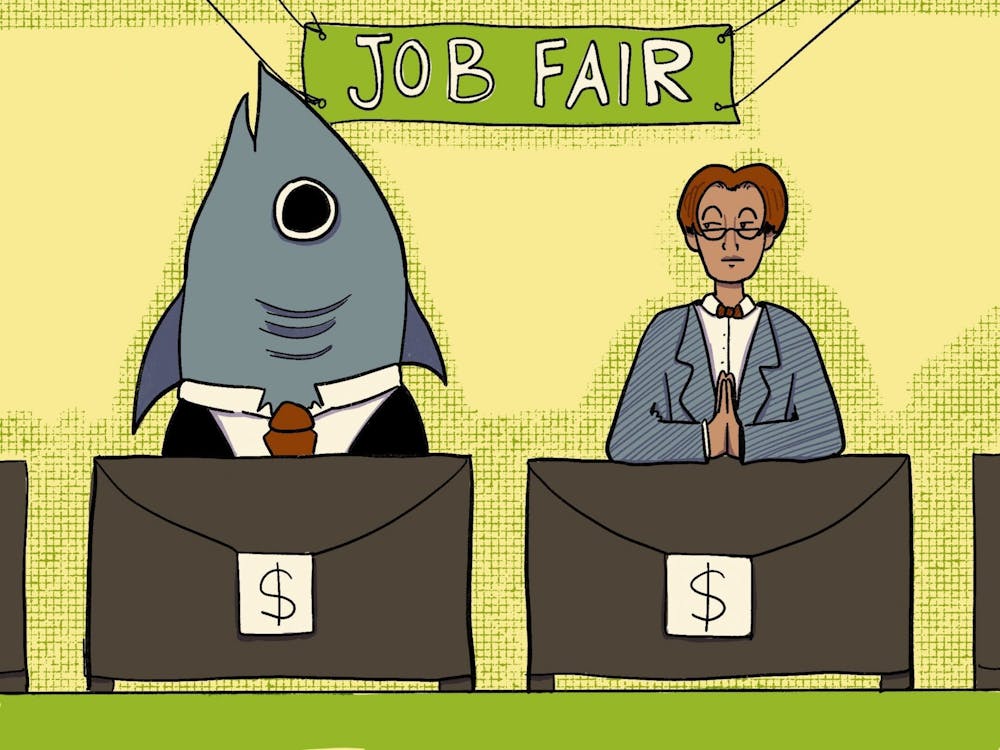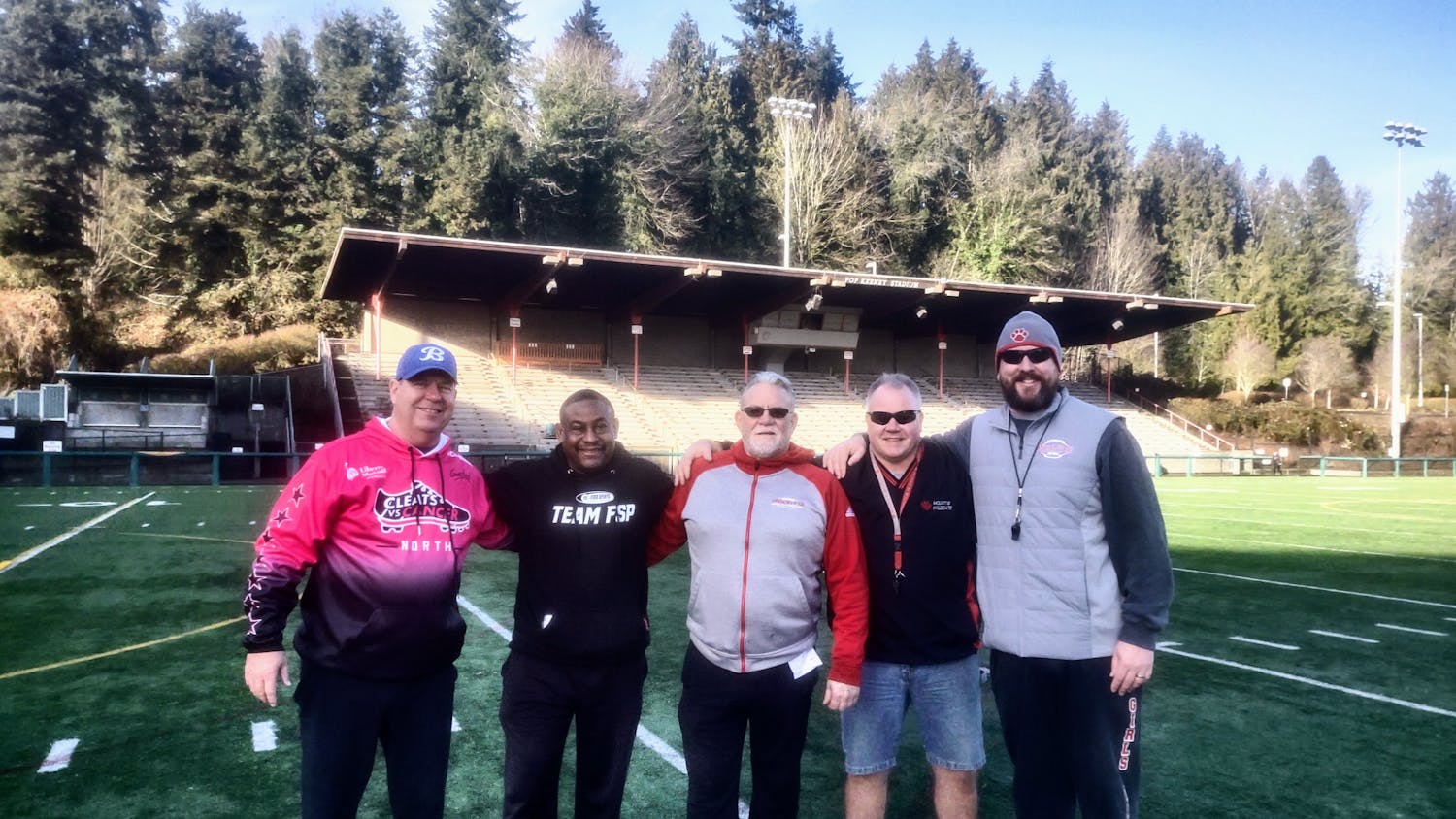Fishing in Whatcom County provides almost 2,000 jobs and millions in revenue, according to Choose Whatcom. But employment rates in the fishing industry are not nearly as high as they used to be.
After the local maritime community expressed a need for more employees, the Marine Trade Job Fair and Try-A-Trade Day came to be. It is set to happen May 4 after a successful first iteration occurred last year.
Carey Hansen is the executive administrator of the Port of Bellingham and is the creator and organizer of the event.
Hansen created the job fair because younger people are needed in Whatcom County’s maritime industry and in the industry as a whole. Currently, this industry is facing two main issues: “graying of the fleet” and climate change.
“Graying of the fleet” is a term used by professionals in the industry. It’s the concept that fishermen who have been involved in the fishing industry for their entire lives will eventually retire and there aren’t nearly as many people ready to fill those roles.
Chris Anderson is a professor of fisheries economics at the School of Aquatic and Fishery Sciences at the University of Washington. He is one of 800 to 1,000 fisheries economists in the world, according to Anderson.
The more pressing issue that faces coastal communities like Bellingham is climate change. It has caused many fisheries to close because of a decrease in fish populations, according to Anderson. This leads many Bellingham vessels to participate in the harvesting of many aquatic species, from fish to shellfish.
Anderson describes the issue of climate change as one that affects us right now, with no easy fix. He believes that fish are part of the solution when compared to other meat options, specifically in regards to greenhouse gas emissions and the water that is taken from waterways to be used in agricultural settings.
“If we are strategic and think about the food system as a whole, and we can move some of our consumption toward even intensively farmed fish, we can begin to make the shift towards a lower emission food system,” Anderson said.
Fishing and marine life is integral to Whatcom County’s economy and culture, according to Sara Smith, an instructor of fisheries and aquaculture sciences at Bellingham Technical College.
“The connection that Whatcom County has with the water is strong and cultural,” Smith said. “We are very tied to the ocean and to our natural resources, and a lot of people in the area are interested in making sure that even if we see increased urban growth over time, we still honor that heritage and make sure that we are preserving those resources and keeping that sense of our identity.”
One of the local maritime programs participating at this year’s career fair is Bellingham Technical College. Being the only technical college in the state that offers an aquatic and fishery associate degree, they focus on applied training and workplace development, sometimes at the Port of Bellingham.
Students in the program are able to get hands-on experience by working in many of the aquatic areas around Whatcom County. Smith said that the students are able to work as technicians at the hatchery located in Maritime Heritage Park or tend to the trout ponds at Whatcom Falls.
Smith said that students learning in the hatchery are getting hands-on experience as hatchery technicians, where they work with fish every day.
“I teach a class that's 100% outside, like I'm outside every single day on the stream doing fish capture habitat surveys,” Smith said.
These programs at BTC are not only for students in pursuit of an associate degree but also for anyone who wants professional development in addition to the skillsets they already possess. Smith also said that many job opportunities in the shellfish industry are overlooked and one of the pathways at BTC prepares students for shellfish proficiency.
One of the organizations that contribute to the trade fair is the Whatcom Working Waterfront Coalition. Deb Granger, the training coordinator for the Northwest Maritime Apprenticeship, says that one of the biggest challenges that the fair saw last year was low attendance.
Last year there were only two buses of students attending, but this year 150 Whatcom students said yes to the invite, according to Hansen.
“My goal this year was to get more than two buses. It's just going to be packed with students and I'm super excited about that,” Hansen said.
This year, both Granger and Hansen agree that incorporating hands-on experiences to the tables would lead to a more successful event compared to last year.
“Students can be shy and not comfortable going up to a table,” Granger said. “So it's really exciting that this year that they're encouraging more interactive, participatory activities for each vendor, and not just a static booth with brochures on the table.”
The Marine Trade Job Fair and Try-A-Trade Day is a viable option for those who have a strong connection to the water and the desire to be part of the ecological conservation of Whatcom’s waterways.
Aislinn Jones (she/her) is a city life reporter for The Front. She is a junior majoring in visual journalism with a concentration in art history, so her work often reflects her interest in art and/or music events. Outside of the newsroom, you can find her taking photos on her film camera or hammocking in the sun. You can reach her at aislinnjones.thefront@gmail.com.






